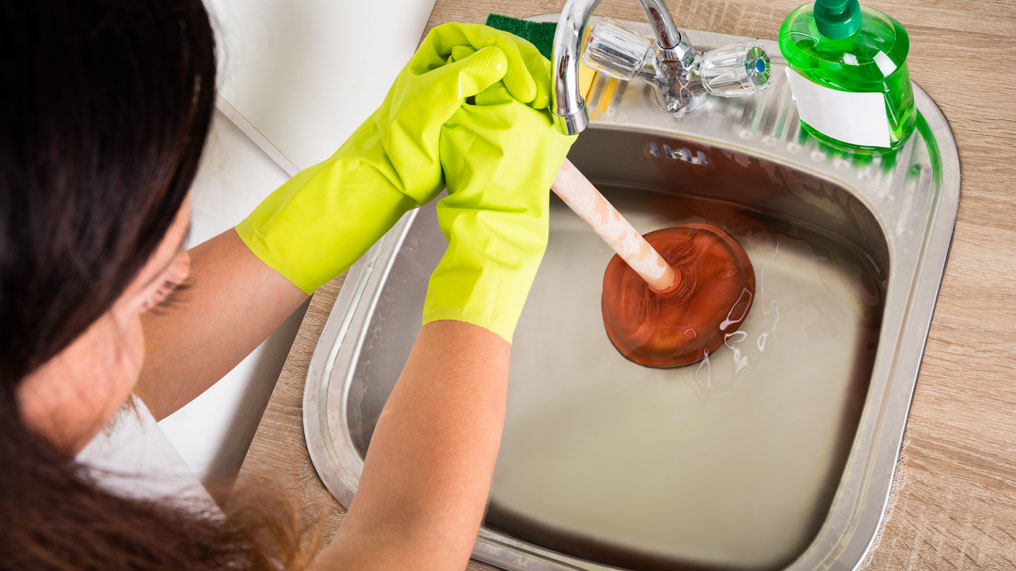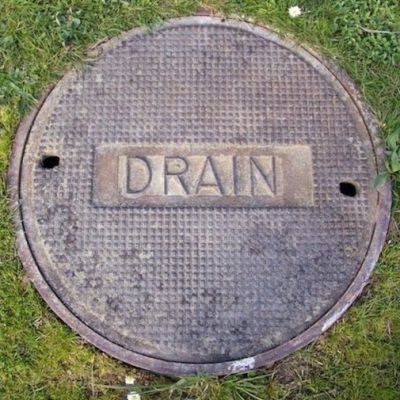This post listed below on the subject of How to handle a clogged drain in your home is fairly entertaining. Read it for yourself and decide what you think about it.

Intro
Dealing with an obstructed drainpipe can be a discouraging experience, disrupting day-to-day activities and possibly causing damages to your home. Nonetheless, before reaching out to pipes professionals, there are steps you can require to resolve the problem on your own. In this overview, we'll explore DIY options and safety nets to tackle a blocked drain properly.
Identifying the Issue
The primary step in addressing an obstructed drain is recognizing the indications. Sluggish drain, gurgling audios, foul odors originating from drains, or water backing up prevail signs of an obstructed drainpipe. Recognizing these signs early can help avoid even more problems.
Selecting the Right Plumbing Service
When selecting a plumbing service, consider elements such as experience, licensing, and customer testimonials. Pick a respectable plumbing professional with a record of top quality handiwork and transparent rates techniques.
Expense Considerations
The cost of professional drainpipe cleaning company can differ depending upon the seriousness of the blockage and the plumber's prices. Demand quotes from multiple service providers and inquire about any added fees to make sure transparency and avoid shocks.
Safety Precautions
When trying DIY drainpipe cleaning, focus on security. Wear safety gloves and glasses to prevent contact with hazardous chemicals or microorganisms. Never ever blend different drainpipe cleansing products, as this can create hazardous fumes.
Situation Studies
Real-life examples highlight the efficiency of DIY remedies and the significance of prompt professional intervention in settling drain obstructions.
Typical Sources Of Blocked Drains
Recognizing the elements that contribute to drain obstructions is essential for efficient resolution. Usual culprits include hair, soap residue, oil, food debris, and international objects like sanitary items or paper towels. Tree origins attacking below ground pipelines can also cause considerable obstructions.
DIY Solutions
For small obstructions, a number of do it yourself remedies can be effective. Pouring boiling thin down the drainpipe can help dissolve oil and particles. Baking soda and vinegar or a combination of salt and baking soda can work as natural cleaners. Using a plunger or plumbing serpent to remove blockages is an additional choice.
Tools and Devices
Having the right tools accessible can make do it yourself drainpipe cleansing more effective. A bettor is a flexible tool for removing obstructions in sinks, bathrooms, and showers. A pipes serpent or auger can get to much deeper blockages, while drain cleaning chemicals can be utilized meticulously for stubborn blockages.
Safety nets
To avoid future clogs, embracing preventive measures is essential. Mount drainpipe guards or filters to capture hair and particles prior to they get in the pipelines. Routinely flush drains with warm water to liquify oil accumulation, and prevent disposing of grease or strong waste away.
When to Call a Professional
While do it yourself remedies can settle small blockages, particular indicators suggest the requirement for professional assistance. Relentless blockages, foul odors in spite of cleansing efforts, or several drains pipes backing up all at once are red flags that necessitate professional treatment.
Conclusion
By adhering to the pointers described in this guide, you can properly deal with obstructed drains pipes and prevent future pipes concerns. Whether opting for do it yourself options or seeking expert aid, prompt action is essential to keeping a healthy plumbing system and protecting the stability of your home.
9 Ways You Can Clear a Blocked Drain
Blocked Drains from Hair
We’ve seen it all before, a build-up of hair that’s leads to a clogged drain. Most times it’s a moderately easy task to simply ‘remove the hair’, but if it’s not cleared up straight away – it can cause a lot of issues down the line.
Hair falling off the body in the shower or while getting ready over the sink and in the bathroom is one of the most common causes of blocked sinks and drains. But whilst it’s a common problem for many homeowners, there are ways you can fix your drain and put a long-term solution in place.
How to Fix Blocked Drains from Hair?
What to do: Small amounts of hair can be removed by pulling it out with gloved hands to avoid it getting worse. Drain cleaning devices such as drain spiders can also be purchased to help remove the hair from the drain. However, it’s important to be careful as some devices and cheap hair removal chemicals can make the problem worse.
It’s important to remove the hair before it gets clogged into the entry of the drain pipes. If you’re unable to reach the hair or the devices aren’t working as intended, it’s time to speak to a blocked drain specialist.
Blocked Drains from Plants and Dirt
Natural debris like trees, shrubs, dirt and leaves can be an issue for water drains, especially after spring and autumn. Your regular garden and drain maintenance that keeps the outdoor area looking great is also essential to the productivity of your water drains and pipes.
Leaves aren’t the only culprit, however – tree roots are notorious for growing underneath in search of water and as a result, will usually head straight to your drains.
How to Fix Blocked Drains from Plants and Dirt?
What to do: To prevent plants, leaves and dirt from blocking the drains, keep the outdoor area clear of fallen leaves and debris. If this mess is left long enough, it will cause your drains to become severely blocked.
Keep your trees well-watered so they are less drawn to the drains as a source of moisture and stay away from clogging plants where possible; like willow trees, oak trees, magnolias, boxwood shrubs, palm trees and gum trees.
While ensuring your yard is free from leaves and dirt is a great way to prevent build-up, sometimes the real issues lay under the surface. Tree roots can crack your drain pipes beneath your home – causing severe blockages and leaks. Specialist drain cleaning equipment can be used to clear the blockage and pipe relining technology can provide a long-term structural repair.
Blocked Drains from Grease Build-up
Like hair in the bathroom, grease and fat will build-up in the kitchen sink over time. These fatty substances are a very common cause of blocked drains and pipes and can be a nuisance to clear out.
Any grease waste or fatty substance that is washed down the sink will stick to the inside of the pipes and eventually build up to a point no liquid can pass through. It’s important to be aware that this grease doesn’t leave the pipes as easily as you would expect.
How to Fix Blocked Drains from Grease Build-up?
What to do: Avoid washing these fatty ingredients down the affected drain as much as possible. Grease that’s washed down the drain will cool and harden in the pipes.
A smart way to prevent this build-up of grease is to start collecting all glass jars that you purchase at the supermarket. Then, instead of pouring this oil or kitchen grease down the drain, put it in the small glass or plastic containers to discard with your garbage.
Blocked Drains from Toiletries
As more people get into the habit of disposing of toiletries down the drain, bigger problems are being caused in our pipes and sewers. Nappies and baby wipes are the two common issue items known to block drains after being flushed down the toilet.
Such items become immersed with water, they absorb the moisture and enlarge, quickly blocking access to water drains and pipes.
How to Fix Blocked Drains from Toiletries?
What to do: This way of disposing of toiletries is dreadful for the environment and everyone should be encouraged to dispose of toiletries the right way. In the home, these items should be taken out with your garbage, just as people should make use of the designated bins when using public changing rooms and toilets.
Blocked Drains from Heavy Rain and Storms
Throughout the wet season, drains will experience floods of water because of heavy rainfall. Because drains aren’t really designed to take the full impact of this weather, water build-up can be common in many Perth households.
When there is an overflow of rainwater in gutters and downpipes, there’s a good chance there’s a blocked drain that needs to be cleared out.
How to Fix Blocked Drains from Heavy Rain and Storms?
What to do: Ensure gutters and outdoor drains are cleaned during the wet season to prevent a build-up of leaves which will cause a bigger blockage. Problems caused by heavy rain and storms will usually require a plumber to help unclog and assist with the wastewater removal. If this is the case, contact them as soon as possible to prevent further build-up and potential flooding in your home and yard.

I am very excited about 8 Tips For Clearing A Blocked Drain and I really hope you liked my post. Do you know someone else who is sincerely interested in the niche? Take a moment to promote it. Thanks a lot for taking the time to read it.
Book